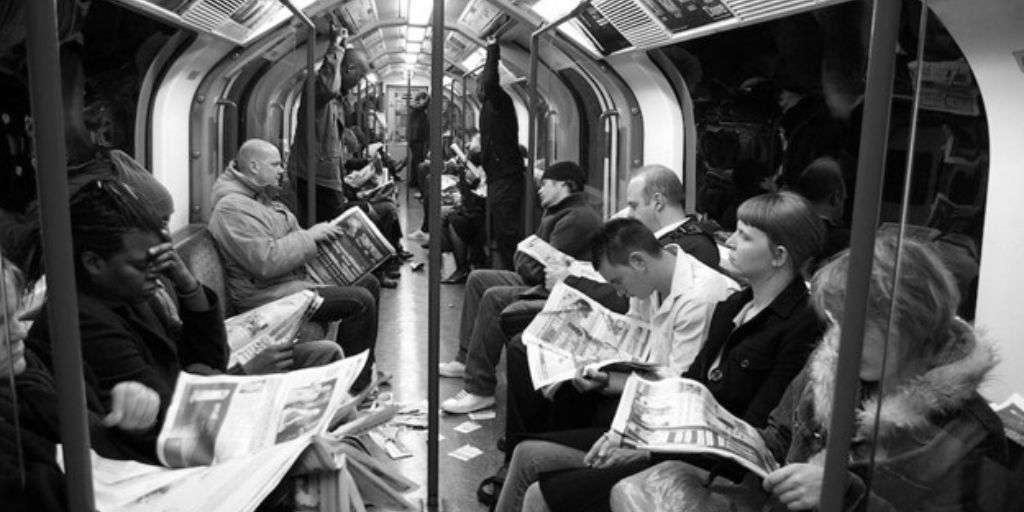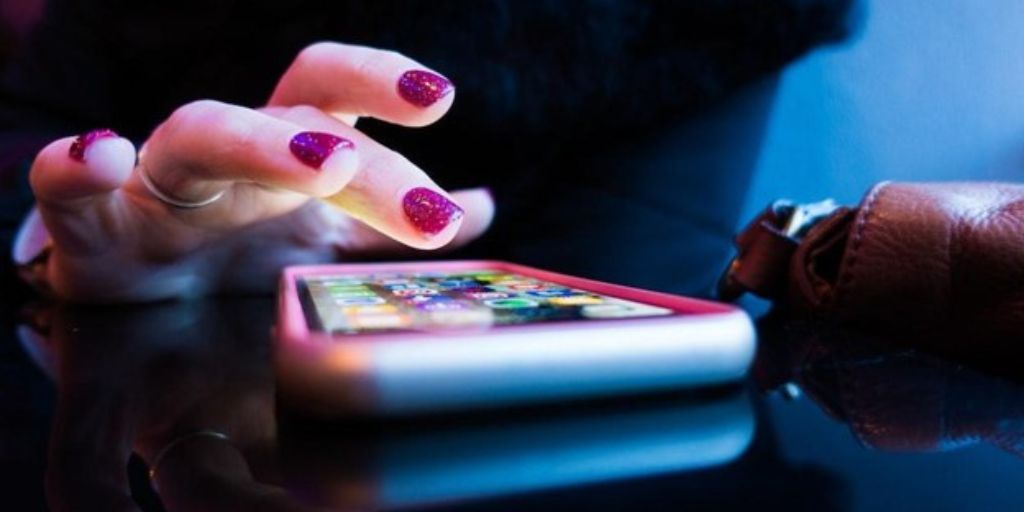
Ah yes, the Good Old Days. When people aren’t on their phones all the time, scrolling, and turning their brains into mush because they can’t go five minutes without looking at their phones. When people would smile and wave to strangers, or have conversations on the train.
Actually, no…no none of that ever happened.
People never spoke to strangers on the train, and the only reason people waved to each other in the street was because stranger danger wasn’t a thing yet. Yet those who are ever resistant to change and unwilling to learn how to use technology will constantly say that young people are depressed because of phones.
What they fail to realise is that phones, the internet, and the world’s interconnectivity haven’t increased the problem, it’s increased our exposure to it. Because of the ease of access to information that social media and the internet have given us, as well as access to information about world events, it means we’re seeing more prevalent reporting on these issues as we become more educated and less stigmatised.
Still, some would blame phones even with a Master of Mental Health degree, so let’s look at some quick facts and disavow the boomers, shall we?
TikTok – Fast Access to Informative Communities
Social media is exactly that, social. Wherever you have a society there’s going to be people doing bad things because – shocking – not everyone is a nice person. However, that doesn’t mean that the entire community is bad – just those particular people within it; and the fact is that TikTok has done wonders for some people’s mental health.
TikTok is an app where people share short-form videos about their interests, lives, experiences, hobbies, careers, advice, or share fun skits. As a result, people are becoming more exposed to various forms of art, culture, and health. There is a huge and diverse mental health community on TikTok, consisting of people who suffer from various forms of mental illness, as well as psychologists and therapists.
TikTok has been instrumental in people feeling like there’s something different about them, being able to put their experiences into symptomatic contexts, resulting in medical treatment addressing these symptoms, and consequently healing, and higher quality of life.

Facebook – Community Support Groups
If you have any experience with mental illness, you may already be familiar with the fact that a big step in treating mental illnesses is to interact socially. This can be time with friends, family, or even a support group. Sociality helps people feel engaged and supported and directly combats the feelings of isolation that those living with mental illness can suffer from.
Community groups such as those found on Facebook offer an accessible 24/7 community of peers going through the same thing as you, for free. If nothing else, it’s a good way to start building confidence around social interactions and can precipitate further steps on the road to healing.
Instagram – Body Positivity
Much in the way of mental illness comes from how we view ourselves. This is nowhere more apparent in personal aesthetics and physicality. We can scroll through Instagram and see gorgeous people photographed gorgeously, then put them online for the world to see. However, what about the people who don’t fit into their culture’s beauty standards?
There is a rising trend in what’s called “Body Positivity.” Body positivity is defined as the promotion of self-acceptance and self-love regardless of what your body looks like; especially if your body type or personal style doesn’t reflect your culture’s ingrained standards of beauty. Just as with any movement, body positivity has a large social media community, with Instagram proving to be a valuable platform for models and beauty professionals of all body types and walks of life.
This Blog Post – Information
Yes, that’s right, this is a form of social media. Social media isn’t just platforms made by shady companies intent on selling your data. It’s not just inane technobabble spouted by entitled teens. Social media is any form of interpersonal communication over a media channel.
We like to demonise it a lot and blame it for the issues that society faces right now, however, this is a case of correlation rather than causation. Yes, social media has become more prevalent as has the saturation of people complaining of mental illness – but the fact is that social media isn’t compounding this issue; it’s merely giving people easier access to information and treatment. While it is true that social media, used incorrectly, can debilitate mental health, when the appropriate usages and communities are sought out, social media can be an immensely useful tool in the pursuit of healing and self-actualisation.
It’s because of social media that we have access to the information, communities, and treatment styles available to those who suffer from mental illness in our community.












